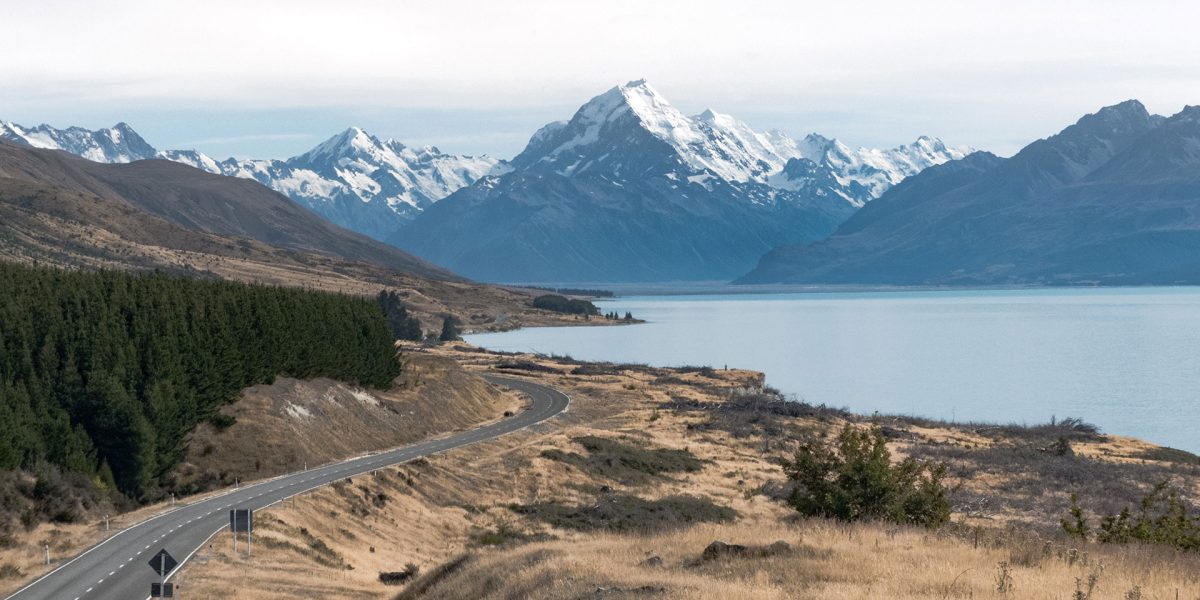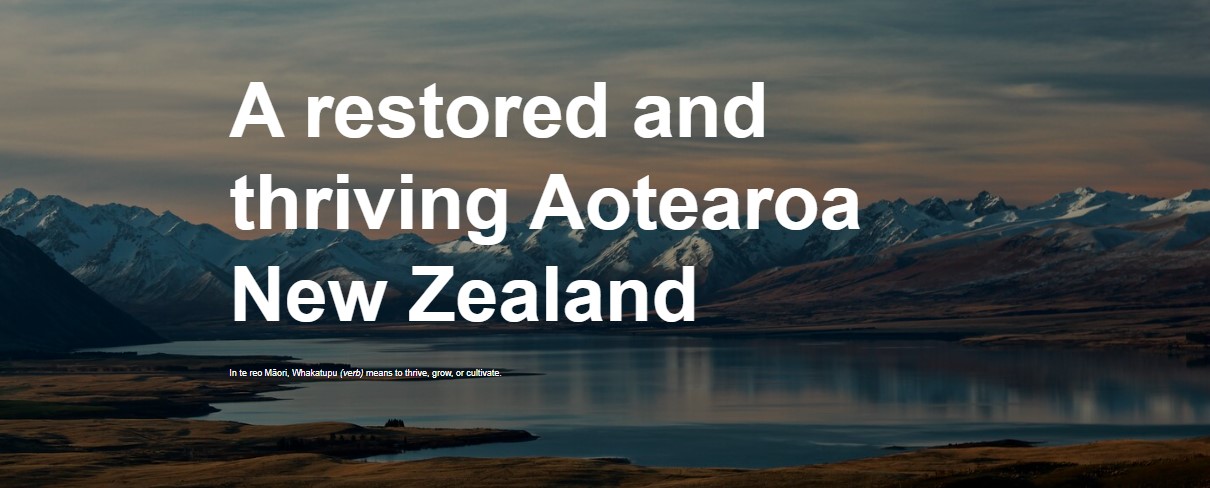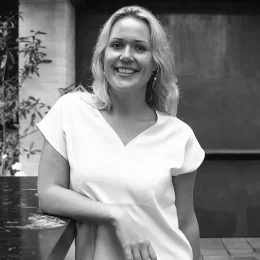The Evolution of Capitalism and Philanthropy
How a New Zealand company is disrupting giving
Business profits and philanthropic pursuits might seem diametrically opposed, but lately there have been some business pioneers that are proving that business in itself doesn’t have to be a Gordon Gekko-style ‘greed is good, profit at all cost’ affair. Yvon Chouinard, the Founder of Patagonia, has recently become the poster child of a new form of capitalism after recently giving away billions of personal equity in the business into a trust to focus profits on climate challenges. And while Patagonia might be a high-profile news story, Chouinard isn’t the first to flip the lid on the profits and purpose.
New Zealand entrepreneurs and philanthropists Ian and Wendy Kuperus, made the decision to commit all profits from their highly successful tax pooling company Tax Management New Zealand (TMNZ) to philanthropic initiatives, in 2019. Similarly to the Patagonia model, TMNZ gives all profits to Whakatupu Aotearoa Foundation, which has a vision of a restored and thriving Aotearoa.
TMNZ disrupted the New Zealand tax burden for companies by pioneering a pooling system to allow New Zealand tax-paying companies to streamline payments and iron out any shortfalls and penalties, but they have always dedicated some of their profits to social and environmental causes in New Zealand. And what started as a small operation in the founders’ son’s bedroom in 2003 soon grew into a large commercial operation working with thousands of clients across the country. TMNZ estimate that they have saved over 100,000 clients more than $500 million.
The CEO of TMNZ, Chris Cunniffe, was a past client of TMNZ as the Group Taxation Manager of Air New Zealand and saw first-hand the power of tax pooling.
“Inland Revenue charges high interest if you pay too little tax and they pay low interest if you pay too much. But the spread between those amounts was huge. The interest rate that was being charged could hurt. When I was trying to forecast the tax payments for a very large company in one of the most volatile industries in the country, if I got it wrong, I ended up incurring double-digit interest costs.
“It wasn’t that I didn’t want to pay the right amount of tax. I was having to forecast at Month Four what one-third of my full year tax liability was going to be. The airline was subject to the volatility of currency, jet fuel prices, and global events, and all these things that can bolster or smash your profitability. So, what Inland Revenue noted was that across the economy the right amount of tax was being paid, it was just some people were paying too much and some were paying too little, and everyone was desperately unhappy about it, particularly those that were hit with this high-interest charge.”
So TMNZ came along to help and found a margin in the middle. For those who paid too much tax, they pay them interest, more than the IRD will pay, and for those who have paid too little tax, they charge them interest, but much less than the IRD charges. So not only did the introduction of the tax pooling concept help iron out the uncertainties of large-scale, complex businesses, it helped businesses at all levels.
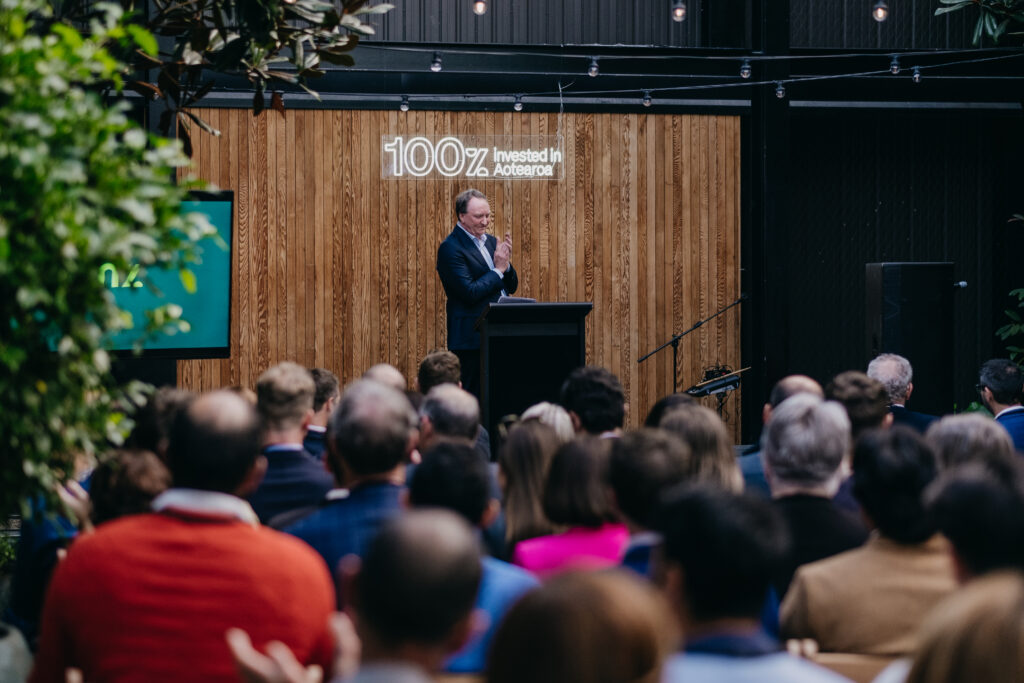
“TMNZ was targeting the medium to the large end of town, but very quickly tax agents said, ‘Oh, actually, this works really well for all taxpayers’. And we saw interest in the products move down through the tranches of business. You roll forward to today and our biggest customers are actually small businesses for whom keeping cash in the business and finding that marginal dollar to pay is always a tough question.
“We’ve morphed from being somebody who solves a problem, post-facto, like after you have filed your tax return. We’ve now become a cash flow solution for people who say, ‘I know I need to pay my tax, but it doesn’t suit me to pay it when Inland Revenue says’. They work out arrangements with us and they pay it over time. We fund them for that or we ensure that there is tax for them to buy and we charge them an interest rate that is way less than what their banks charge and certainly less than what Inland Revenue charges. It gives them flexibility and total control about when they pay their tax,” continues Chris.
And while the commercial focus of TMNZ has actually helped the wider New Zealand community in its own right, Ian and Wendy Kuperus have been driven to do much more with the profits from their company.
“It’s significant. In 2021, we donated $8 million to charity. Our profit is highly variable. It depends on what the economic conditions are and demand, but we have over the years given tens of millions of dollars to philanthropic causes,” says Chris.
TMNZ have really flown under the radar in terms of their philanthropic connection and it’s not something that they have pushed for PR purposes, but the company is conscious of possible perceptions of corporate greenwashing.
“That’s something that we are mindful of; if you’re going to do it, you do it properly. This is a commitment that the shareholders have said, we don’t want to take another cent out of this business.”
Still, this shift in shareholder return has not changed the business focus of TMNZ. In fact, it has even galvanised its purpose.
“TMNZ is to be run as a commercial business. We’ve got this model where I’m the CEO of TMNZ and Carl [Vink] is the CEO of the Foundation. But TMNZ’s purpose is firstly in serving our clients. If we don’t do that, if we don’t meet our client’s needs, serve them well and delight them, then we don’t have a business proposition. Without the business proposition, there is no profit to go to the Foundation. We have to be really good at what we do. But the knowledge is that what we are doing is to enable our people and business to grow, thrive and to be future fit in a way that will give us sustainable dividends of donations to the Foundation.”
And while Whakatupu Aotearoa Foundation has an impact purpose, it has as much focus on strategy, leverage and performance as a commercial entity. Its website also speaks to this entrepreneurial link: “As an organisation, we embrace the importance of entrepreneurship, we accept the nature of risk and take a long-term view to create systemic change in our ecosystems and communities.”
Carl Vink, Chief Executive at the Foundation describes this mandate as a series of focus areas under a vision of a “restored and thriving Aotearoa”.
“We want people to thrive in Aotearoa. That’s the guiding light. That’s the future we really want to see. We view our role as being catalytic and I think a lot of that comes from our entrepreneurial DNA. We talk about having an appetite for risk, how can we be catalytic to support this transformation that must take place?
“When you look a bit further into what our focus areas are, it’s really two themes. One is our environment and the other is community wellbeing. Within the environment, our immediate focus is on climate change. Within the community wellbeing space, we seek sustainable ways to support marginalised and disadvantaged communities. We stick closely to these themes, both of which require smart, sustainable and urgent action.”
Some of the Foundation’s investments include Project Crimson (which works to renew and restore our ecosystems), Live Ocean (which partners with New Zealand scientists, innovators and communicators to scale up action for a healthy ocean), All Heart NZ (which partners with corporates to practically repurpose their redundant and unwanted items to further develop the sustainable, ethical and social aspects of procurement and supply chain management) and the Auckland Climate Festival (bringing the city together to accelerate climate action).And these partnerships are not just one-off “donations” but are more often investments to ignite or grow an idea that is set to have ongoing impact helping to achieve the goals of the Foundation. Support goes beyond the traditional notion of transactional funding and projects are uplifted through access to advice on strategic planning, financial management, digital technology and more, either through the Foundation and TMNZ or their combined networks. In this respect, the entrepreneurial DNA from TMNZ has well and truly embedded in the Foundation, according to Carl.
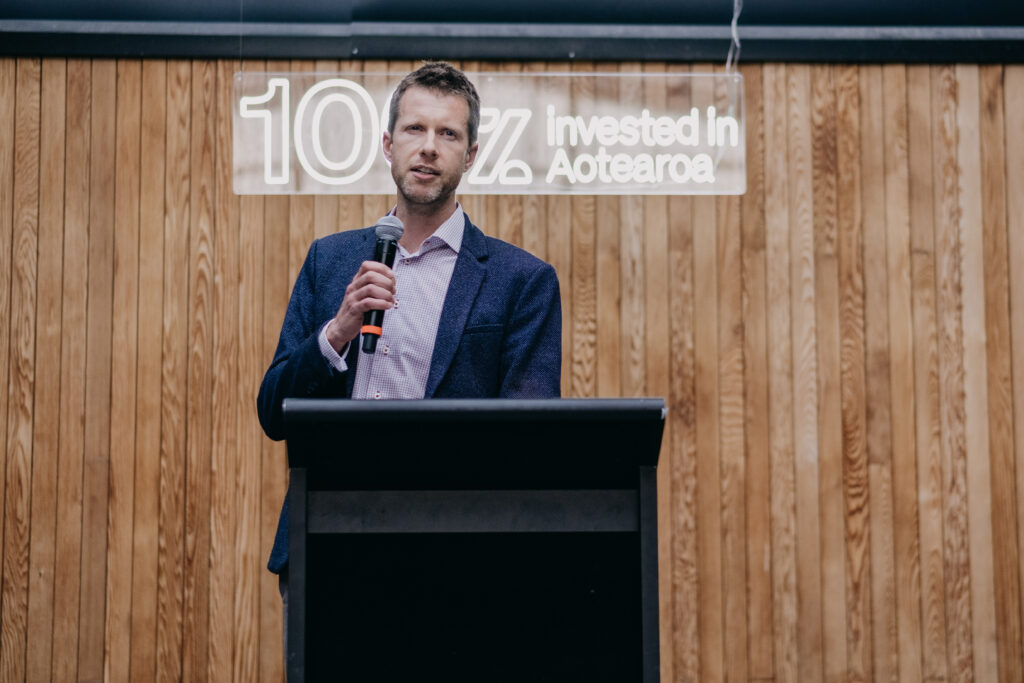
“When you look back at the story, the entrepreneurial spirit, the wanting to help build a better system, we must consider all the connecting parts. This is where strategic philanthropy lives; tackling a series of interlinking problems. When you move into trying to change a system, you need a different perspective. You need to be prepared to take risks, to see things that are past the horizon and limit unintended consequences.
“The DNA, when you go back to the founding journey of TMNZ and Ian’s story, that’s always been part of it. We use the terms ‘strategic philanthropy’ and ‘venture philanthropy’ as concepts that guide our work. We don’t want to just deal with what we see in front of us at a charitable level. We want to interrupt the problem and, where we can, prevent the harm over responding to it.”
Not only does the Foundation benefit from this entrepreneurial DNA but TMNZ also in turn draws from the growing impact of the Foundation. Chris highlights the fact that every senior hire TMNZ has had in the last two years has identified their philanthropic partnership and this purpose-driven philosophy or aspect of the business as one of the reasons they looked at the company.
“And we’ve hired people from multinationals. We have people returning from overseas and also joining from very large organisations. Our Chief Financial Officer has just joined us from BNZ, and our Chief Technology Officer has joined from ASB. They’re driven by the sense that they really connect with our purpose.” Says Chris.
TMNZ has also incorporated this umbrella focus into the workplace culture; every staff member is invited each year to nominate a registered charity, and the Foundation will donate a thousand dollars on their behalf to it.
“We have learned some amazing things about our staff, some really deep, quite personal stories have been told about why our charity is important to them. In terms of culture, this invites people to bring their whole purpose or their whole being to work and to tell their story.”
ESG mandates are incentivising most companies to highlight their consideration for one or more of the Environmental, Social or Governance metrics as it might appease shareholder and customer demands. And every little bit helps of course, but TMNZ has gone to another level in terms of a fundamental link between business and giving, and the combined momentum that has come from having both work hand in hand. There is kind of a balance in focusing on building a long-term sustainable business that can also contribute to sustainability for the community and environment in which it operates.
Carl sums up this evolution with his own time with TMNZ and Whakatupu Aotearoa Foundation:
“My journey really has tracked quite significantly through this latter stage of the company being a commercially driven business that has very generous founders, into thinking more about what the future is going to be for our country and for our people; what kind of business do we need to be to thrive in that future.”
Find out more about Tax Management NZ and Whakatupu Aotearoa Foundation.
